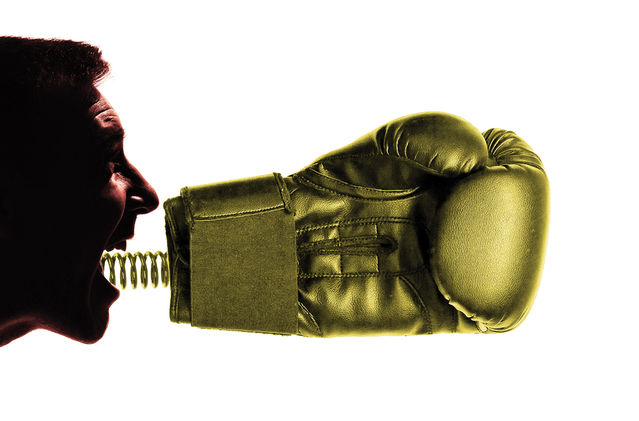Strong Words
Differences in word choice can reflect the urgency of our messages and increase their impact.
By Abigail Fagan published September 4, 2018 - last reviewed on September 24, 2019

We don't often pause to consider the specific bits and pieces of language that make up our daily attempts to engage, challenge, and convince people around us. But differences in word choice can reflect the urgency of our messages and increase their impact.
With Feeling
From a young age, we learn that emotive expressions like shouts or tears can influence others. When trying to persuade, we also seem to gravitate toward emotional language. Researchers at Northwestern University asked some participants to write product reviews that simply highlighted an item's positive traits, while others were tasked with convincing a person to purchase it. When their goal was to persuade, participants tended to use more emotionally charged words, such as exciting or wonderful, as opposed to perfect. This was the case even when they were told their audience had a rational approach to decision making—in which case appeals to emotion might backfire. "There seems to be a strong link in memory between emotion and persuasion," says Matthew Rocklage, the lead author of the report.
Digging Deep
Reaching for rarer and lengthier words may convey greater emphasis, according to research from Stanford University. In one study, participants rated the extent to which items were "expensive," "beautiful," or some other feature when the description was modified by different adverbs, such as very, remarkably, or surpassingly. They tended to give higher ratings when the adverb was less common and when it contained more syllables—two characteristics that signal more mental effort in word selection. The scientists then introduced longer and shorter versions of made-up adverbs such as lopusly and tupabugornly. Again, longer words strengthened the effect of the description.
Sound Effects
A recent German language study found that acoustic qualities of words help account for differences in how pleasant or exciting those words seem. Words rated as more negative and arousing tended to have sonic attributes associated with sibilants (the hissing s in miss), short vowels (the a in cat rather than paper), and voiceless consonants (those that don't activate your vocal chords, like t as opposed to g). The researchers are conducting similar studies with English words, and the results are lining up with the German findings, says Arash Aryani, a postdoctoral researcher at Freie Universität Berlin.
Facebook/LinkedIn image: Hanna Kuprevich/Shutterstock
